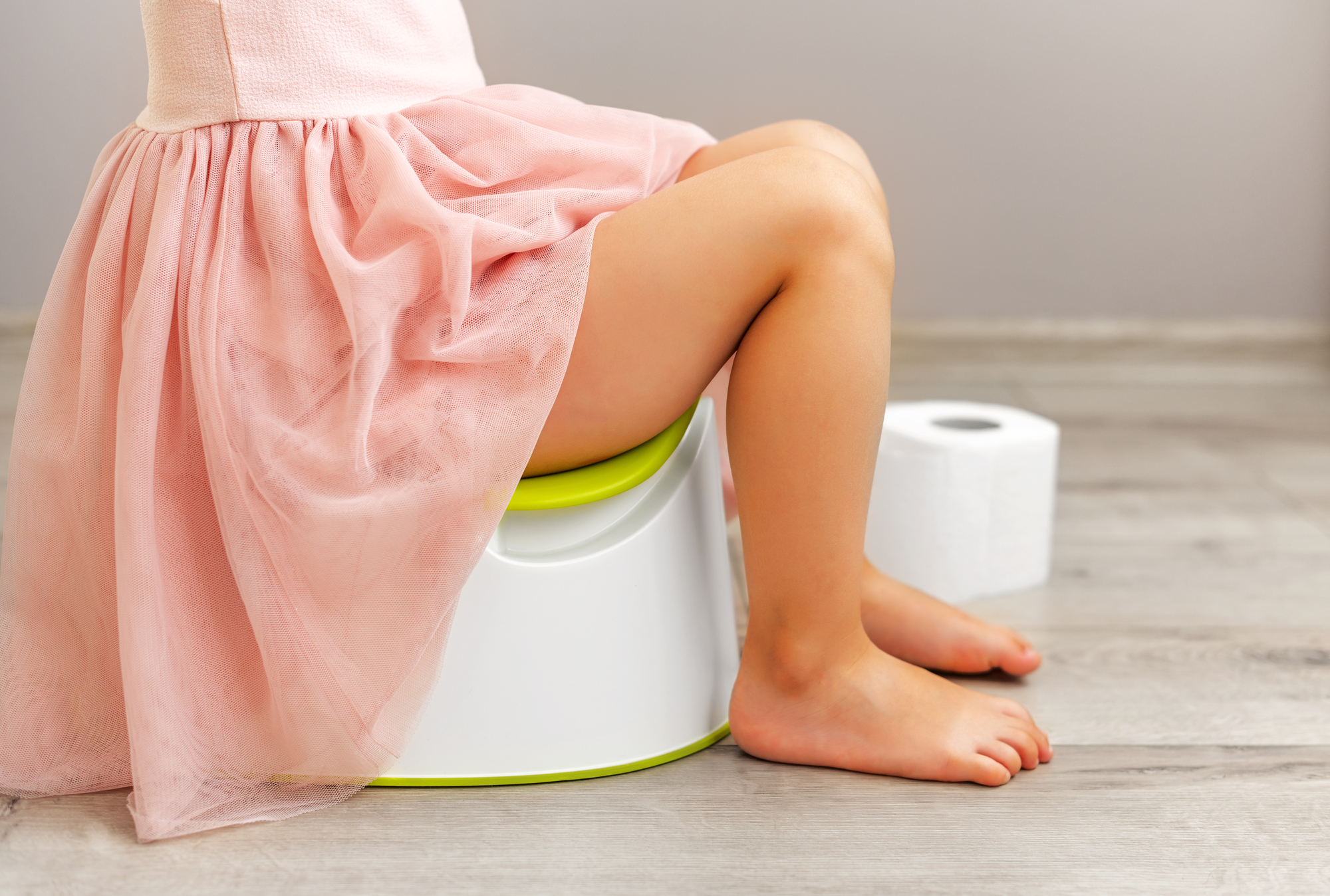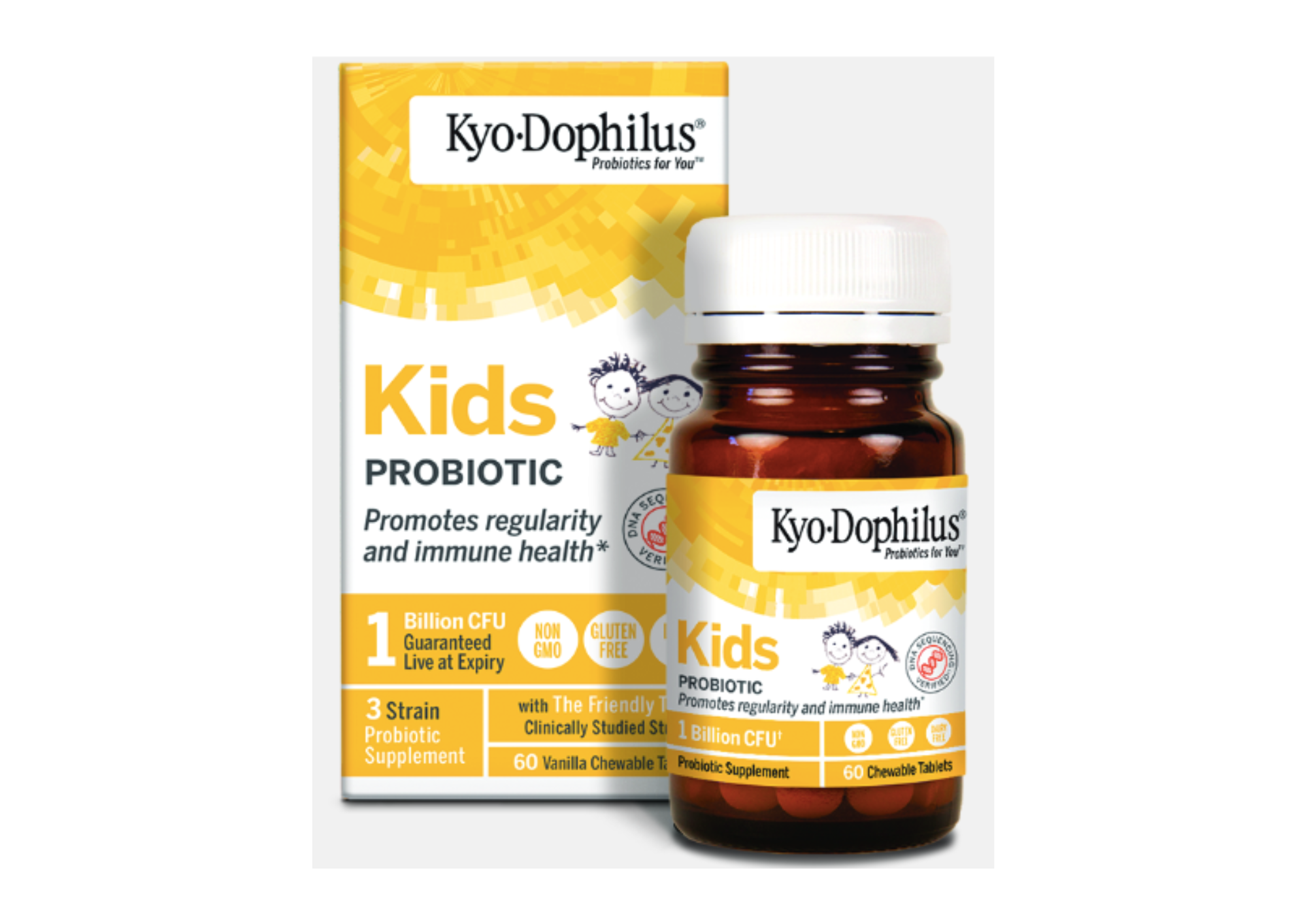Did you know that 1 in 20 of children’s visits to the doctor can be traced back to constipation? Digestive health is an often overlooked cornerstone of overall well-being, and a lot of that hinges on harnessing nutrition for a happier, healthier gut.
Understanding Constipation
Constipation is a common concern among children, characterized by infrequent or difficult bowel movements. What experts consider “normal” can vary from child to child. Some may have one healthy bowel movement per day, while others pass stools up to three times per day. There’s also a spectrum to healthy-looking stools, but according to the Bristol Stool Form Scale, the general goal is sausage-like poops that aren’t overly soft or too dry and hard–the latter extreme is where you may notice classic symptoms of childhood constipation, such as:
- complaints of feeling bloated or full
- pain and strain during bowel movements
- incomplete bowel movements
- bathroom avoidance/withholding
- small amounts of blood on toilet paper
- irregularity, or less than two bowel movements a week

Organic constipation refers to instances where painful bowel movements result from an underlying medical condition (such as celiac disease or thyroid disorders). But it’s more common to see cases of functional constipation, which can arise from withholding behaviors or issues following a gastrointestinal infection.
When a child associates toilet time with pain or discomfort, they’ll often show reluctance around “doing number two.” And who can blame them? Unfortunately, avoidance only worsens constipation, quickly turning fears into a self-fulfilling prophecy.
The Role of Diet and Lifestyle
No matter the cause, constipation indicates a problem in the digestive system. Luckily, daily routines and what we put in our bodies can be leveraged to maintain or restore digestive health. For instance, sedentary lifestyles are linked to irregular bowel movements. But when kids are encouraged to get on-the-move, we’ll often see bowel movement too!

A thriving, diverse microbiome could be considered the secret “MVP” for scoring more regularity. In particular, good hydration and a balanced diet rich in fiber, fruits, and vegetables–along with plenty of fermented foods–is the golden standard for promoting good bacteria growth in the gut. However, sticking to dietary guidelines can be a challenge for parents with busy schedules and limited budgets, junk food at every turn, or picky eaters who aren’t ready to embrace “eating the rainbow.”
Why Supplement with Probiotics?
For parents facing these everyday challenges, supplementing with daily probiotics offers a promising solution. Probiotics are beneficial bacteria that support gut health and digestion, and incorporating them into your child's daily diet can help promote regularity. A number of studies show positive correlations between probiotic use and the frequency of bowel movements in children with functional constipation. They’ve also been known to help restore regularity after the damaging effects of antibiotics.
A team of researchers from London’s King's College further conducted an extensive review of 14 medical studies. Each randomly assigned individuals with constipation either probiotics or a placebo. On average, it was discovered that probiotics led to a reduction in "gut transit time" by 12.4 hours, a 1.3 increase in the weekly frequency of bowel movements, and the softening of stools for easier passage.

Needless to say, it might be worth adding probiotics to your shopping list! But what should you look for when there are troubled tummies at home? Standouts include probiotic strains in the Lactobacillus and Bifidobacterium families. You don’t have to look far to find studies lauding these two for their many digestive benefits. Many pediatricians even call for Lactobacillus’ use in the treatment of irritable bowel syndrome as it can support overall gastrointestinal (GI) function. Similarly, Bifidobacterium is known for its regulating effects on gut flora and bowel movements. Double-blind controlled trials of both strains have indicated that each have potential in treating children with chronic constipation.
Supplement with The Friendly Trio
To keep bowel movements regular and make constipation pain and strain a thing of the past, support your child with a science-backed daily probiotic designed with gut health in mind: Kyo-Dophilus Kids Probiotic. Formulated with 1 billion CFU of The Friendly Trio–Lactobacillus gasseri, Bifidobacterium bifiduma, and Bifidobacterium longum–this one-a-day chewable tablet is ideal for digestive support and easy to get down the hatch with its tasty vanilla flavor. It’s also gluten-, soy-, milk-, and sodium-free, and has no artificial colors or flavors.

Quality probiotics can be a wonderful supplement to add to your parenting toolkit, offering support for happier guts and helping kids truly thrive from the inside out.

Since its establishment in 1972, Wakunaga of America Co., LTD has played a unique role in promoting consumer health worldwide through the research, development, manufacturing and marketing of high quality medicinal herbs and dietary supplements. The corporate philosophy of Wakunaga centers on a commitment to research and a mission to serve public health. This mission is accomplished by providing products of the highest quality, which are supported by science. Brands include Kyolic AGE, Kyo-Dophilus Probiotics and Kyo-Green Superfoods.







